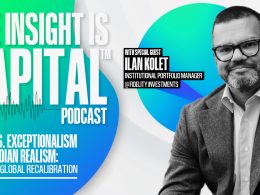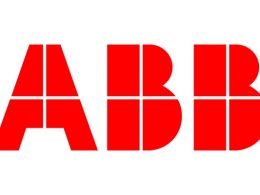Emerging Markets Cheat Sheet (June 27, 2011)
Strengths
- Chinese Premier Wen Jiabao said that China’s efforts to stem inflation have worked and that the pace of consumer price increase will slow. The market is interpreting his statement as a potential tightening pause.
- China’s National Development and Reform Commission (NDRC) wants to change or remove local government limits on the number of license plates issued, the National Business Daily reported.
- China’s A-share market valuation reached an 11-month low this week, and it is in a move to form a short-term technical rebound.
- Moody’s upgraded Brazil’s credit rating to BAA2 from BAA3. Large reserves, estimated at $335 billion, should permit Brazil to weather any contagion from the Greek crisis.
- Brazil’s unemployment in May declined to 6.4 percent from 7.5 percent last year, the lowest level on record. Growth in retail wages of 4 percent year-over-year has been supportive of growth in financial intermediation and retail activity.
- Retail sales in Mexico in April grew by 4.9 percent in April, ahead of estimates of 2.7 percent.
- The European Union’s 10 eastern states lead the 27-nation bloc in boosting productivity. This chart from Bloomberg plots the ratio of industrial production and industry labor indexes, a gauge of productivity changes. Industry in Romania produces 84 percent more per employee than it did in 2005, followed by Slovakia and the Baltic countries. By contrast, companies in Greece are less productive than they were six years ago.

Weaknesses
- China’s NDRC says the month of June will see inflation reach the highest level in the last 11 months, and then gradually slow down. Hog prices have reached their highest this week, up 80 percent year-over-year, and pork prices are up 63 percent year over year. Pork prices are expected to continue to rise for the rest of the month.
- China’s Purchasing Manager’s Index (PMI) is in a downward trend, at 50.1 percent for June versus 51.6 percent in May.
- China’s 7-day interbank rate reached 9 percent, reflecting extremely tight liquidity conditions, after recent RRR increases and the expectation for further interest rate increases. China’s monetary tightening this year has slowed the economy and prevented housing prices from dramatic change.
- The La Polar controversy in Chile, related to unauthorized credit activities at the retailer, does not show signs of abating. Following an 80 percent decline in the share price, the stock rebounded by 35 percent in the last two days, prompting an insider trading investigation by the authorities.
- The jobless recovery will make it harder for Central European countries to narrow budget deficits that have ballooned during the crisis, according to Raiffeisen analyst in Prague. Persistent unemployment will cause income-tax revenue to fall short of plan, while welfare spending won’t decline as projected.
Opportunities
- UBS investment research has pointed out that Korean stock market valuation is near a historical bottom. As shown in the chart, implied return on equity is 10.1 percent at the moment, after a market correction of 9 percent in the KOSPI. UBS believes the falling ISM Index and Greek debt crisis have mostly been priced in, and therefore this is a buying opportunity.

- GDP in Colombia in the first quarter grew by 5.1 percent with mining leading the way, up 9.4 percent. Agriculture followed, up 7.8 percent, and commerce, up 6.7 percent. The prospect of lower corporate taxes should be supportive of investment activity in the country.
- The Bogota Stock Exchange is likely to see six to seven IPOs by the end of this year, valued at $3.5 billion. We expect strong demand from investors in this vibrant economy.
- Yesterday, the newly elected president of Peru, Ollanta Humala, indicated he would like to have “strong government that will protect democratic gains of last 10 years and will support investment in Peru’s natural resources.” Mr. Humala will travel to Washington at the beginning of July at the invitation of President Barack Obama, where more clarity on his government program is likely to emerge.
- Global carry trade could finance the current account deficit in Turkey, according to J.P.Morgan. A slowing U.S. economy and the turmoil in Greece mean the rates will likely stay lower for longer, and global fixed-income investors will continue to hunt for yield. And the carry on the lira is one of the highest in the world.
Threats
- China’s industrial production may see a further slowdown. This is the result of credit tightening in China to control housing and consumer goods prices.
- It is still unclear if the merger between Perdigao and Sadia, forming Brasil Foods two years ago, will be allowed to proceed on competitive grounds. The final vote was postponed until mid-July to allow the company to come up with a disposal plan for some of its assets.
- Is the Chairman of ASUR, the airports operator in Mexico, likely to sell his 20 percent stake in the company? The rumor in the local paper has put the stock under pressure this week.
- In Turkey, newly elected Kurdish deputies threatened to boycott the Parliament, creating political tension ahead of the debate on a new constitution and the formation of the new government. The boycott has the potential to upset financial markets.











